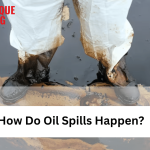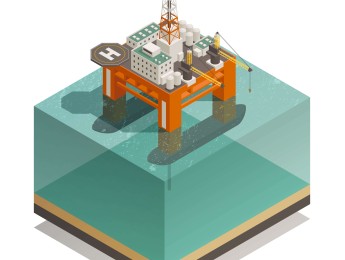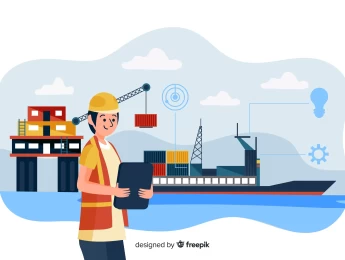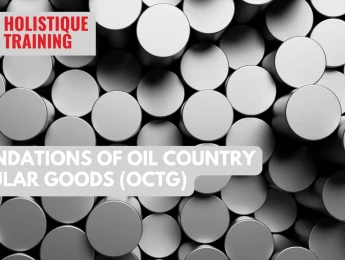As protecting marine environments has become a priority, it is now a priority for all departments and organisations involved in producing and shipping offshore oil and gas resources to enhance their awareness of managing and mitigating marine pollution.
This course provides an overview of global approaches to current regulations and codes, surveys of ship-to-source pollution management, and emerging trends. In addition, you will explore legal and legislative factors and methods for monitoring marine pollution and review industry best practices.
Upon completion of this course, participants will be able to:
- Identify sources and challenges in marine pollution management and protection of marine environments.
- Describe current international policies, regulations, and compliance initiatives.
- Develop your understanding of ship-source management of marine pollution.
- Examine the specific hazards of offshore oil and gas operations in marine environments.
- Refine your understanding of the legal standards for marine pollution management, including the consequences of non-compliance.
- Review currently available technologies and strategies to prevent marine pollution.
- Design and implement efforts to reduce the risks of serious environmental impacts.
This course is intended for
- Managers responsible for oil and gas transportation
- Professionals in maritime industries
- Administrators responsible for implementing international regulations
- Legal and Technical professionals interested in the fundamentals of managing marine pollution
- Anyone interested in developing an understanding of managerial practices and international regulations for marine pollution management
This course uses a variety of adult learning styles to aid complete understanding and comprehension. Participants will review case studies to highlight key areas of importance and the possible regions for faults. They will be supplied with the best tools required for learning exercises to improve their skills. Participants will analyse the examples to thoroughly understand how these skills, techniques and methods apply in the workplace.
Day 5 of each course is reserved for a Q&A session, which may occur off-site. For 10-day courses, this also applies to day 10
Section 1: Overview of Marine Pollution
- Define the types of marine pollution and their environmental impacts.
- Examine oil pollution, offshore oil and gas production, and the consequences of oil spills.
- Describe risks and hazards from heavy metals and chemical pollution.
- Explore the impacts of solid garbage and liquid sewage waste.
- Assess the risks and incidents of pollution from ships.
- Discuss the economic losses incurred by marine pollution.
Section 2: Managing Ship-Source Marine Pollution
- Outline the effects of bilge and ballast water on marine environments.
- Review the International Maritime Dangerous Goods (IMDG) code.
- Assess the impacts of ship scrapping and recycling.
- Describe the environmental repercussions of dumping ship waste and other materials.
- Examine the main components of a Garbage Management Plan (GMP).
- Discuss the development and benefits of the Shipboard Oil Pollution Emergency Plan (SOPEP).
Section 3: Management Systems and Marine Pollution
- Discuss the ISO 14000 family of standards and environmental management.
- Outline the International Safety Management (ISM) Code.
- Describe the effects of the ISM Code on marine pollution management.
- Elaborate on contingency planning and emergency management.
- Review methods of preparing and responding to marine pollution.
- Examine intervention methods and cleanup technologies.
- Describe the IMO recommendations for the implementation of port reception facilities.
- Review the impacts of training and certification.
Section 4: Legal, Legislative, and International Factors
- Define criminal liability for crew, ship owners, and charterers.
- Outline accident investigations and surveys.
- Describe the key international maritime initiatives focused on addressing marine pollution:
- International Maritime Organization (IMO)
- Marine Environment Protection Committee (MEPC)
- The International Convention for the Prevention of Pollution from Ships (MARPOL).
- Review international marine agreements:
- International Oil Pollution (IOPC) Funds
- Tanker Oil Pollution Indemnification Agreement (TOPIA)
- Small Tanker Oil Pollution Indemnification Agreement (STOPIA)
- United Nations Convention on Law of Sea (UNCLOS)
- Examine the UN Sustainable Development Goal 14: Life Below Water.
- Discuss the origins, impacts, and consequences of The Precautionary Principle, Polluter Pays Principle, and Strict Liability.
- Examine the shift of marine pollution risks and liabilities to underwriters.
- Describe the legal management of polluting incidents.
Section 5: Overview of Surveillance Methods
- Describe the goals of surveying marine resources.
- Identify considerations in planning: the sites, stations, and samples.
- Define the statistical requisites for sample size and quantities.
- Outline tools and techniques for analysis.
- Discuss the compatibility of different survey technologies.
Section 6: Topical Issues
- Discuss the International Code of Safety for ships operating in polar waters (Polar Code).
- Examine air pollution and marine shipping.
- Describe the IMO Audit Scheme for oil and gas.
- Investigate the impacts of decommissioning offshore platforms.
- Discuss the development and potential effects of unmanned vessels.
Upon successful completion of this training course, delegates will be awarded a Holistique Training Certificate of Completion. For those who attend and complete the online training course, a Holistique Training e-Certificate will be provided.
Holistique Training Certificates are accredited by the British Assessment Council (BAC) and The CPD Certification Service (CPD), and are certified under ISO 9001, ISO 21001, and ISO 29993 standards.
CPD credits for this course are granted by our Certificates and will be reflected on the Holistique Training Certificate of Completion. In accordance with the standards of The CPD Certification Service, one CPD credit is awarded per hour of course attendance. A maximum of 50 CPD credits can be claimed for any single course we currently offer.
- Course Code PO2-109
- Course Format Classroom, Online,
- Duration 5 days












